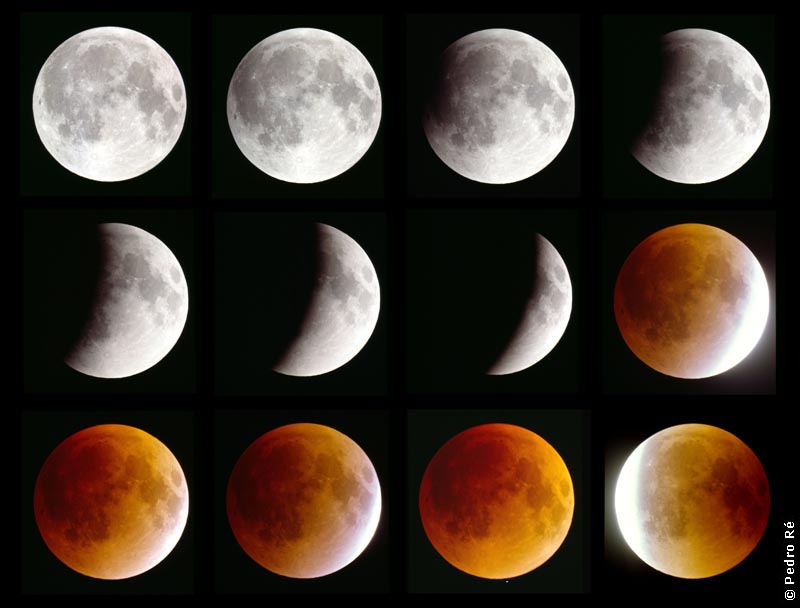You are using an out of date browser. It may not display this or other websites correctly.
You should upgrade or use an alternative browser.
You should upgrade or use an alternative browser.
Lunar Eclipse, October 28th
- Thread starter Kalista
- Start date
D
Deaf258
Guest
I have seen at least 2 lunar eclipses and at least 3 solar eclipses.
bttrflykiss621
New Member
- Joined
- Oct 11, 2004
- Messages
- 34
- Reaction score
- 0
Weirdo said:We can't look directly at it, right? Cuz it'll get us blind?
I think that's only for solar eclipses, not lunar.
K
kuifje75
Guest
http://sunearth.gsfc.nasa.gov/eclipse/LEmono/TLE2004Oct28/image/TLE2004Oct-Map1.GIF
this shows the area where eclipse will be visible. Utah will only see the eclipse at moonrise.
this shows the area where eclipse will be visible. Utah will only see the eclipse at moonrise.
linneaelliott
New Member
- Joined
- Sep 5, 2003
- Messages
- 197
- Reaction score
- 0
Thanks for the info. I will have to tell my students to try to see it.
KingDragon
New Member
- Joined
- Mar 12, 2003
- Messages
- 513
- Reaction score
- 0
have you see the moon?
there was a lunar eclipse *moon* tonight . you should've check outside right away.
there was a lunar eclipse *moon* tonight . you should've check outside right away.
- Joined
- Dec 8, 2003
- Messages
- 21,465
- Reaction score
- 1
yea yea yea i did!!! time was 9:24pm... still dark here so wait one hr back normal!!!!
- Joined
- Jun 8, 2004
- Messages
- 54,899
- Reaction score
- 1,518
FireDragon said:there was a lunar eclipse *moon* tonight . you should've check outside right away.
 Cloudy here tonight, can't see it.
Cloudy here tonight, can't see it.We did see one a couple years ago; it was neat!
FireDragon said:there was a lunar eclipse *moon* tonight . you should've check outside right away.
Yep sure did.. really creepy if you ask me lol.
FireDragon said:there was a lunar eclipse *moon* tonight . you should've check outside right away.
MOD: Please merge this thread to that thread....
http://www.alldeaf.com/showthread.php?t=11499
Thank you
Astronomy buffs and amateur stargazers turned out to watch a total lunar eclipse Wednesday night -- the last one Earth will get for nearly two and a half years.
Tony and Carline Cazeau of Columbia brought their two daughters, Gabrielle, 12, and Valerie, 8, to the Maryland Science Center for the educational experience.
"It looks like chocolate," Valerie said.
With the Earth passing directly between the sun and the moon, the only light hitting the full moon was from the home planet's sunrises and sunsets, resulting in an orange and red hue.
Jim O'Leary, senior director of technology, IMAX, at the Science Center's Davis Planetarium, said there are usually two or three lunar eclipses a year, but there won't be any in 2005 or 2006.
"This one is a particularly long one," he said of the eclipse, which began about 9:15 p.m. Eastern time and was expected to last around three hours and 20 minutes.
According to the National Aeronautics and Space Administration, total lunar eclipses give scientists a chance to assess the quality of Earth's atmosphere. Ash from volcanic eruptions, for example, can make an eclipsed moon look much darker. The recent eruptions of Mount St. Helens in Washington were not expected to affect the eclipse because they consisted of far more steam than ash.
The last total lunar eclipse was May 4, but it wasn't visible from North America, NASA said.
The next total eclipse of the moon will not be until March 2007. (AP)
Tony and Carline Cazeau of Columbia brought their two daughters, Gabrielle, 12, and Valerie, 8, to the Maryland Science Center for the educational experience.
"It looks like chocolate," Valerie said.
With the Earth passing directly between the sun and the moon, the only light hitting the full moon was from the home planet's sunrises and sunsets, resulting in an orange and red hue.
Jim O'Leary, senior director of technology, IMAX, at the Science Center's Davis Planetarium, said there are usually two or three lunar eclipses a year, but there won't be any in 2005 or 2006.
"This one is a particularly long one," he said of the eclipse, which began about 9:15 p.m. Eastern time and was expected to last around three hours and 20 minutes.
According to the National Aeronautics and Space Administration, total lunar eclipses give scientists a chance to assess the quality of Earth's atmosphere. Ash from volcanic eruptions, for example, can make an eclipsed moon look much darker. The recent eruptions of Mount St. Helens in Washington were not expected to affect the eclipse because they consisted of far more steam than ash.
The last total lunar eclipse was May 4, but it wasn't visible from North America, NASA said.
The next total eclipse of the moon will not be until March 2007. (AP)
C
CrazyMomma
Guest
Yep! It will show tonight...
tekkmortal
Active Member
- Joined
- Nov 27, 2003
- Messages
- 1,534
- Reaction score
- 0
WhoCare said:Can't see it. Cloud blocked the moon. I saw it few years ago. Its neat and orange moon.
same.




